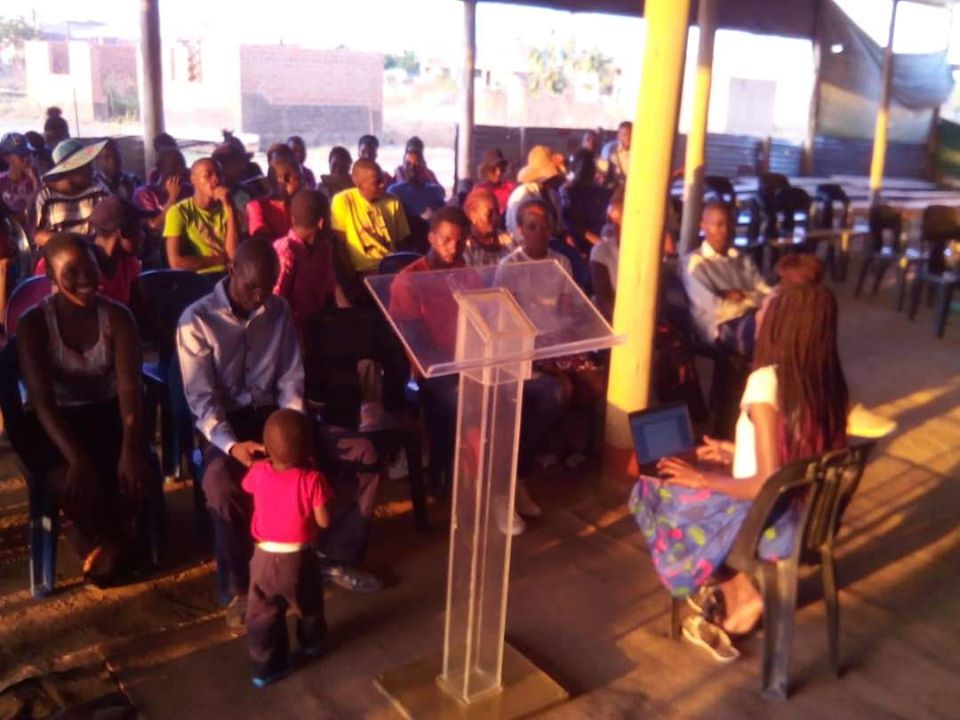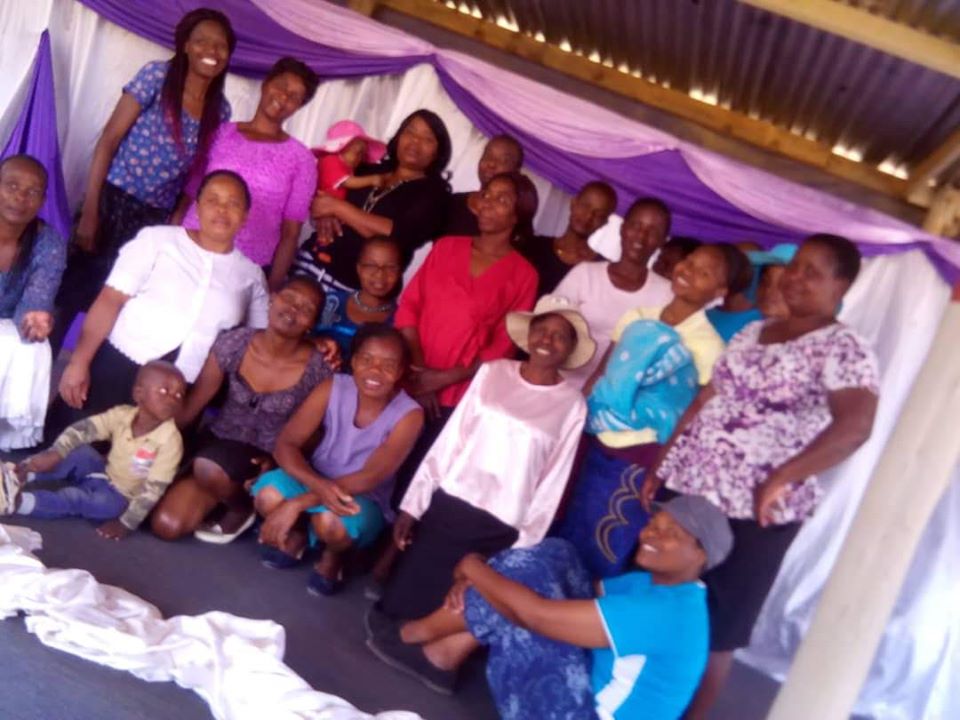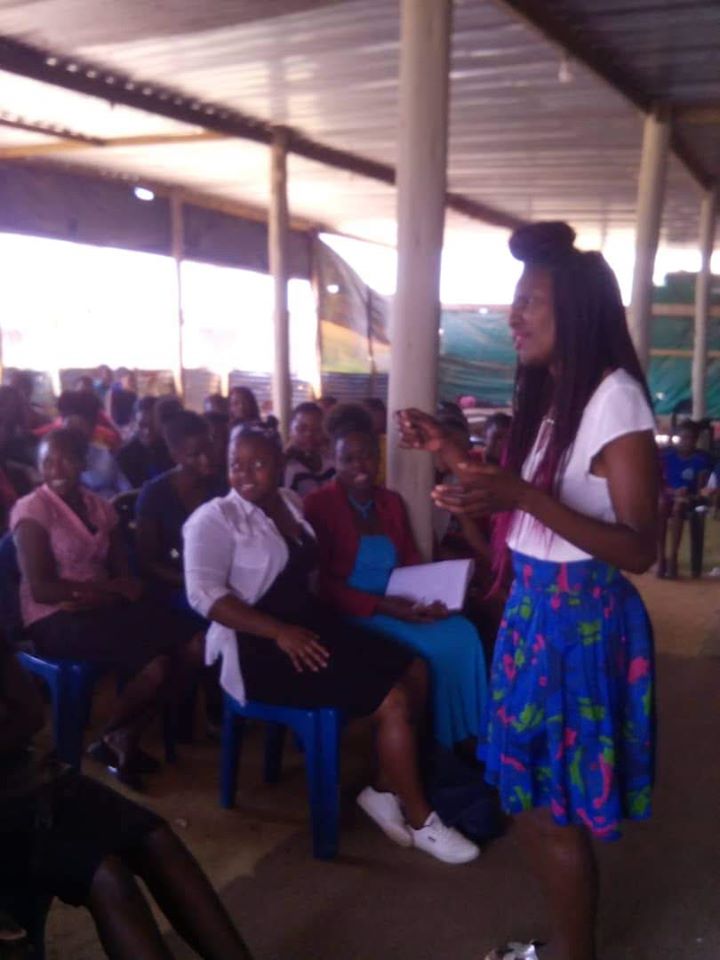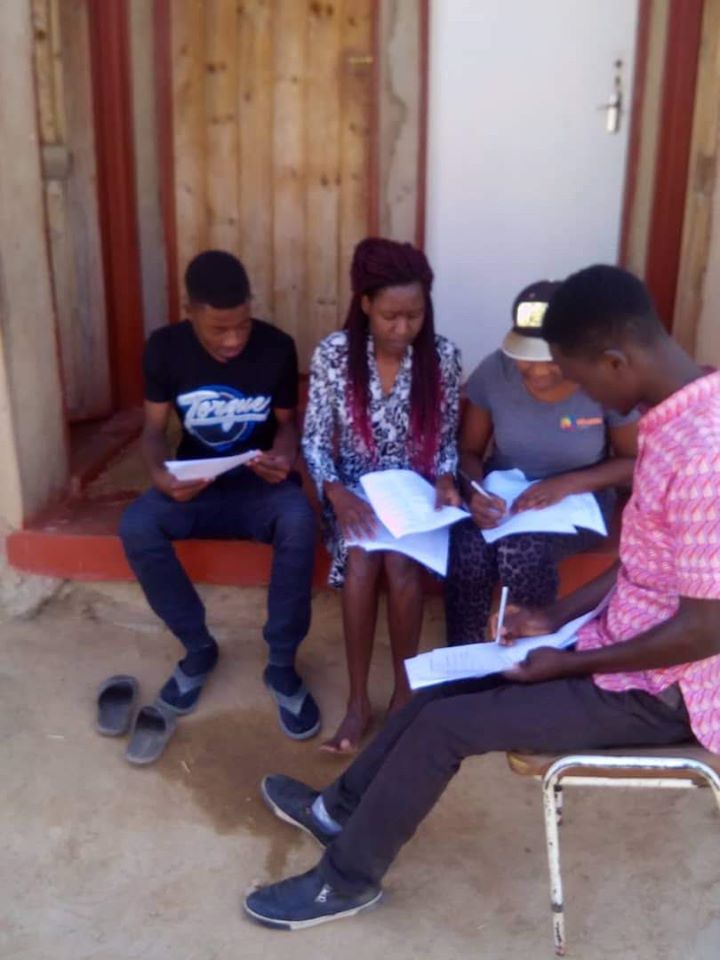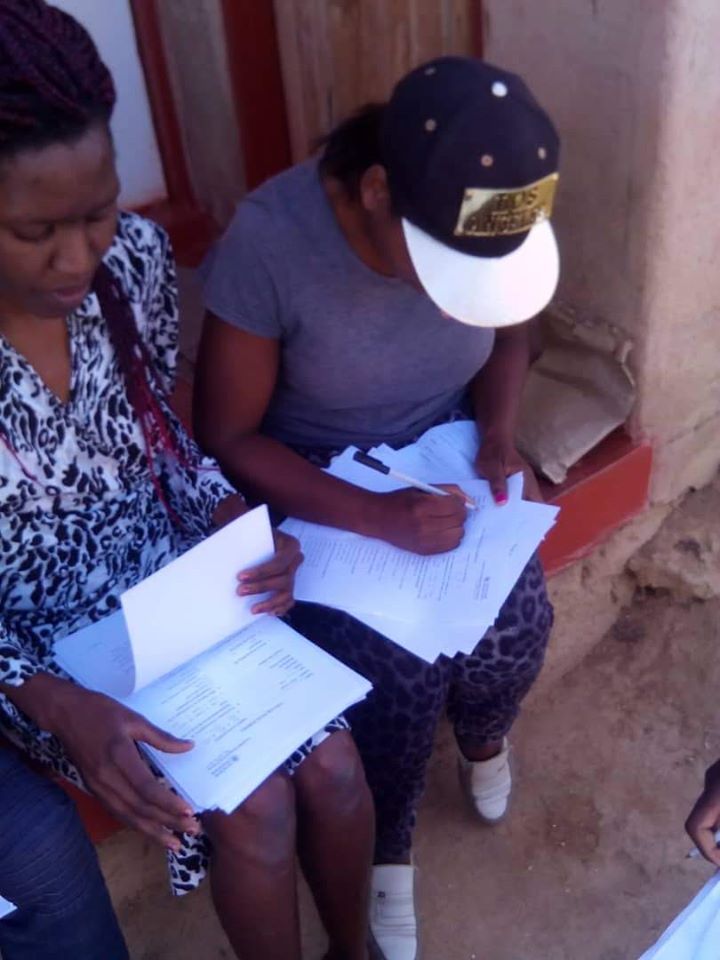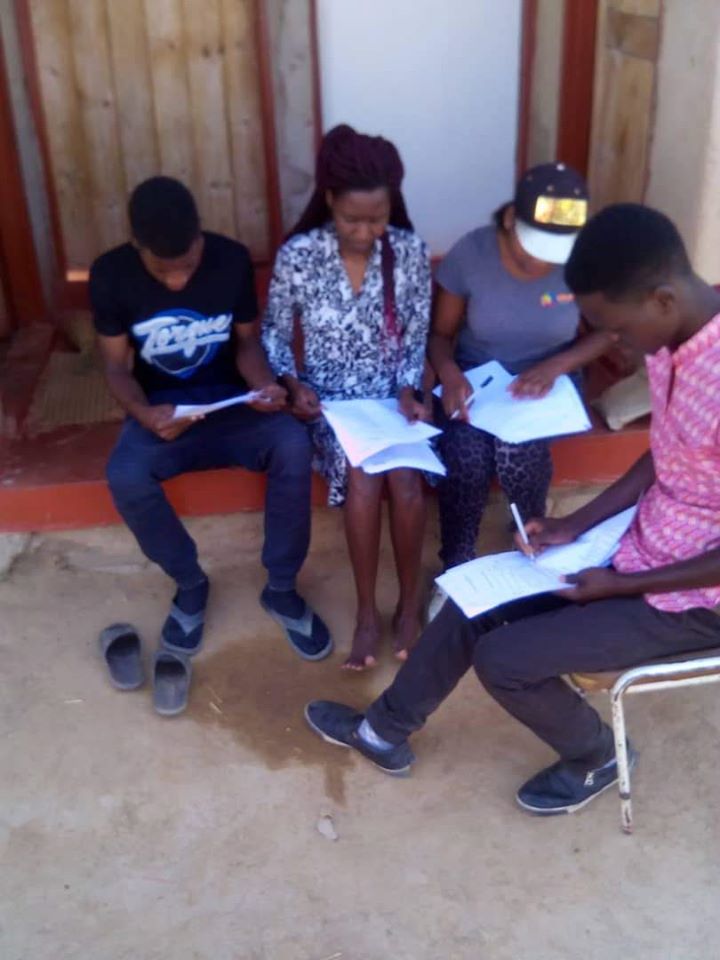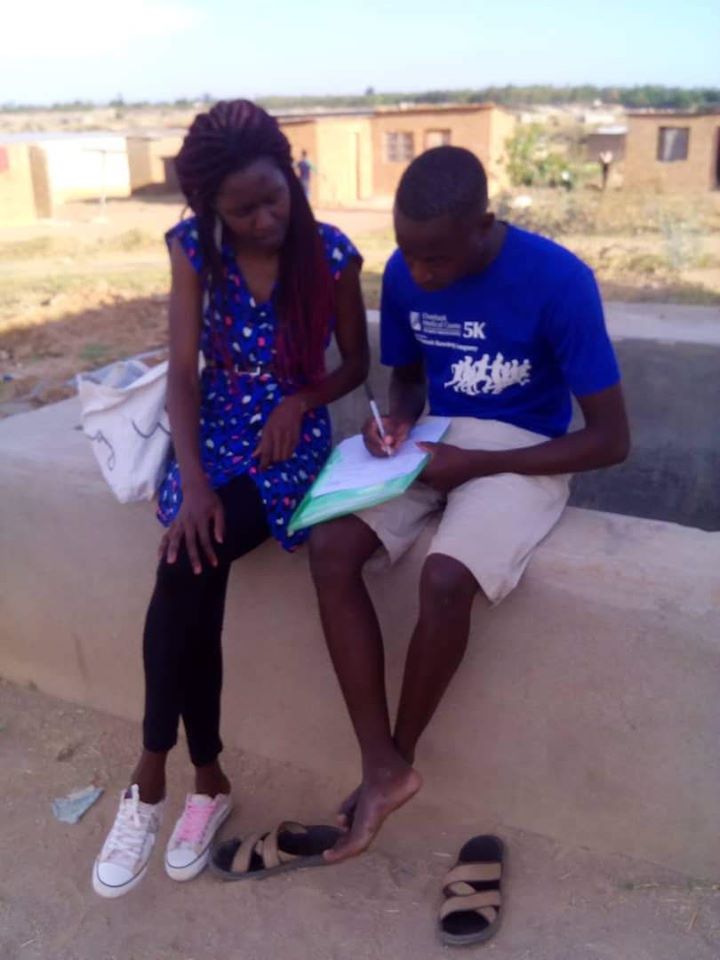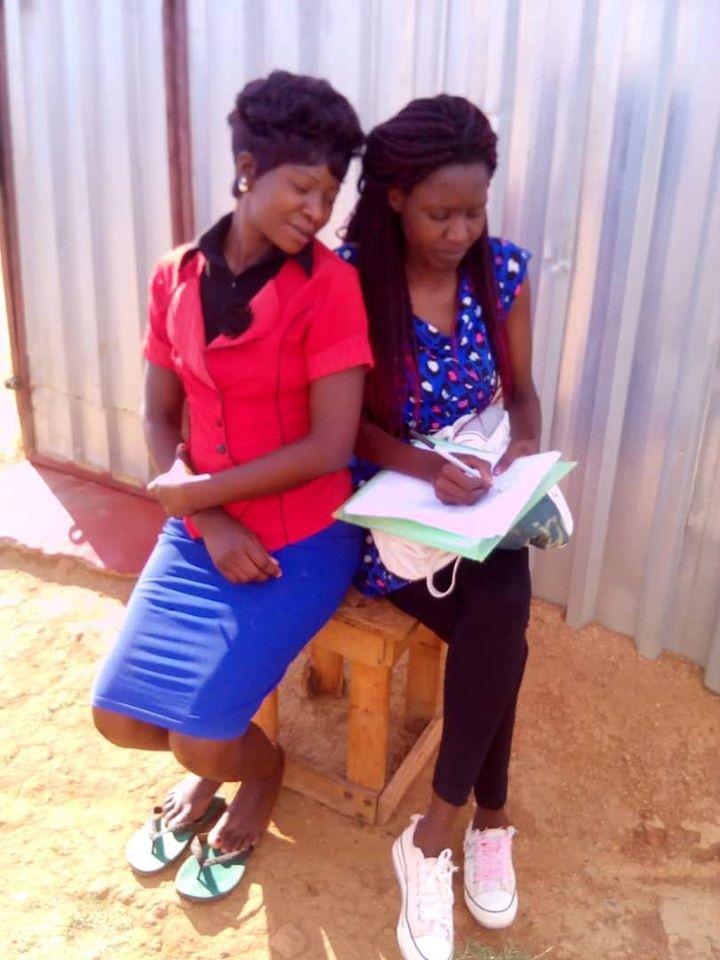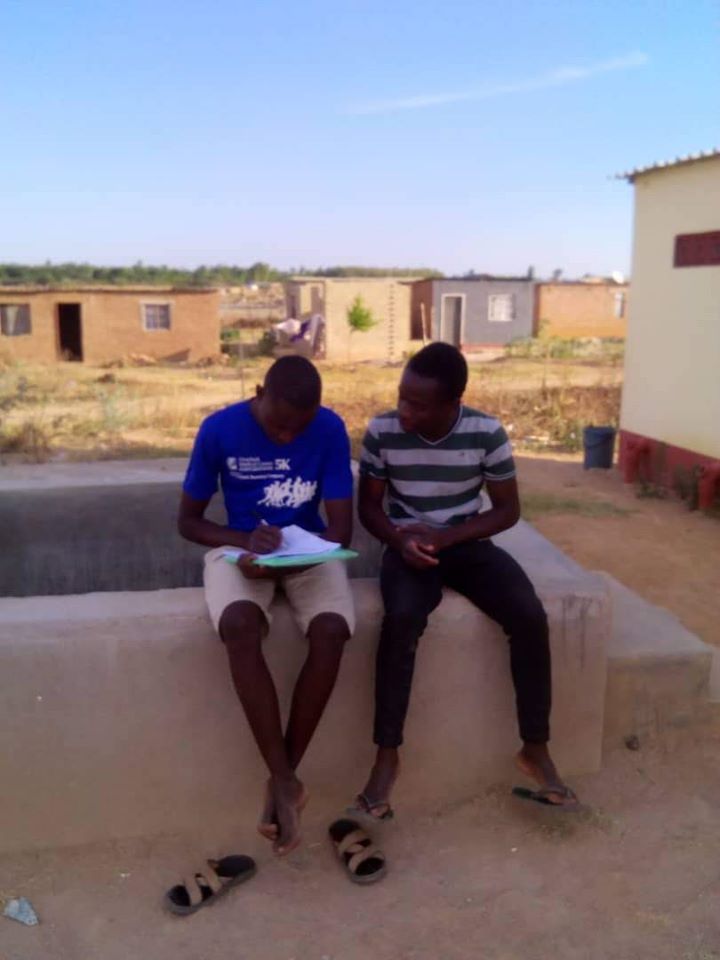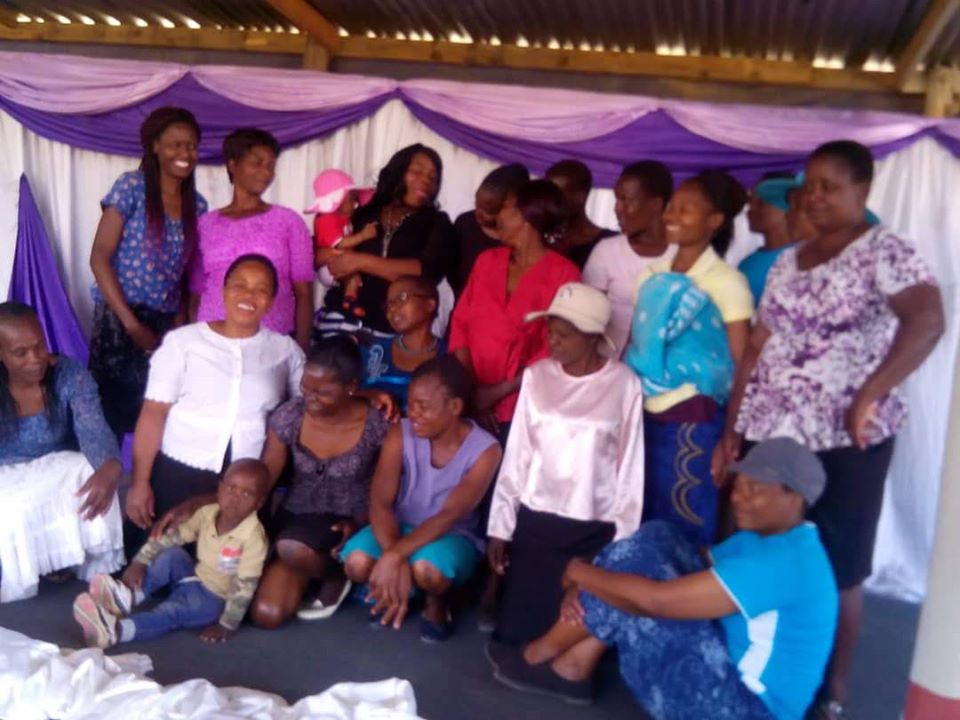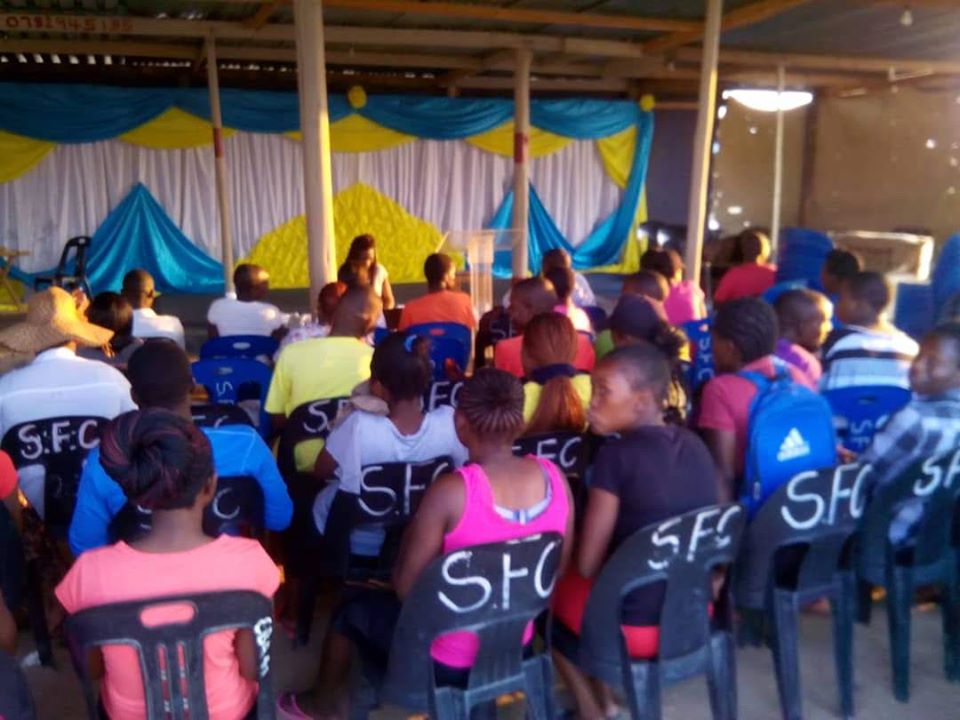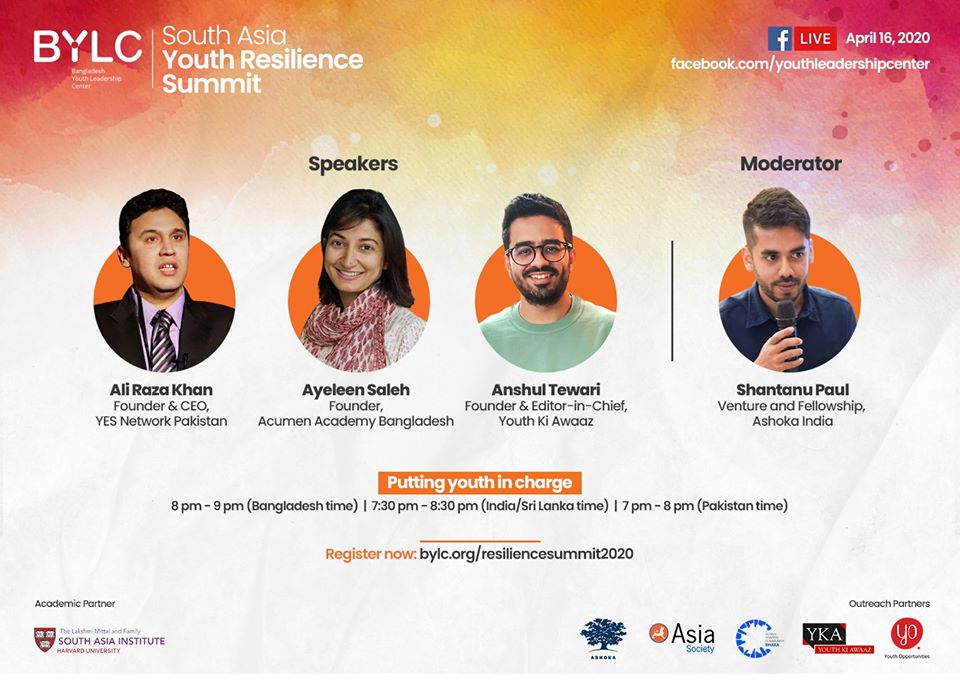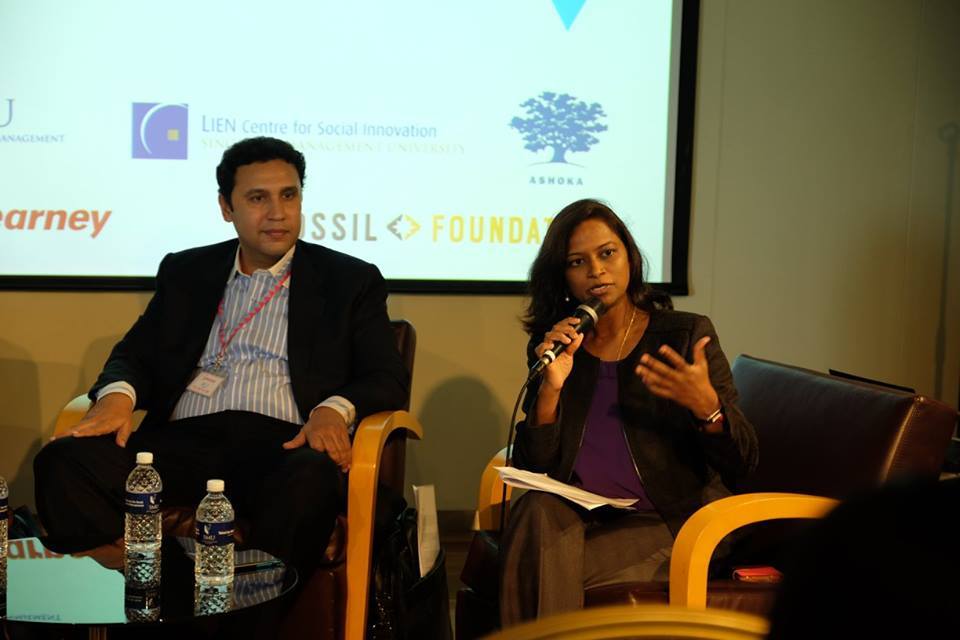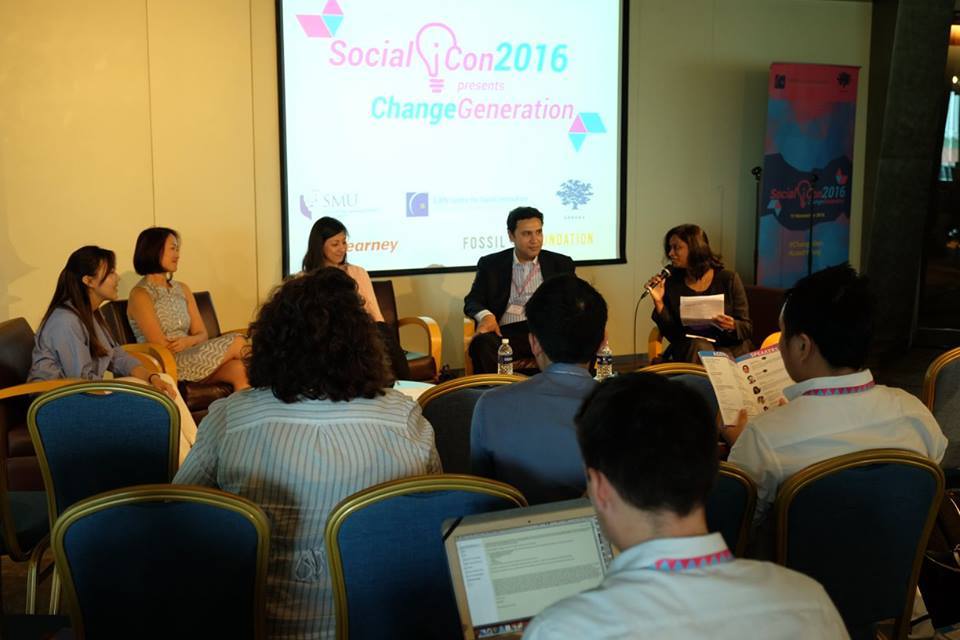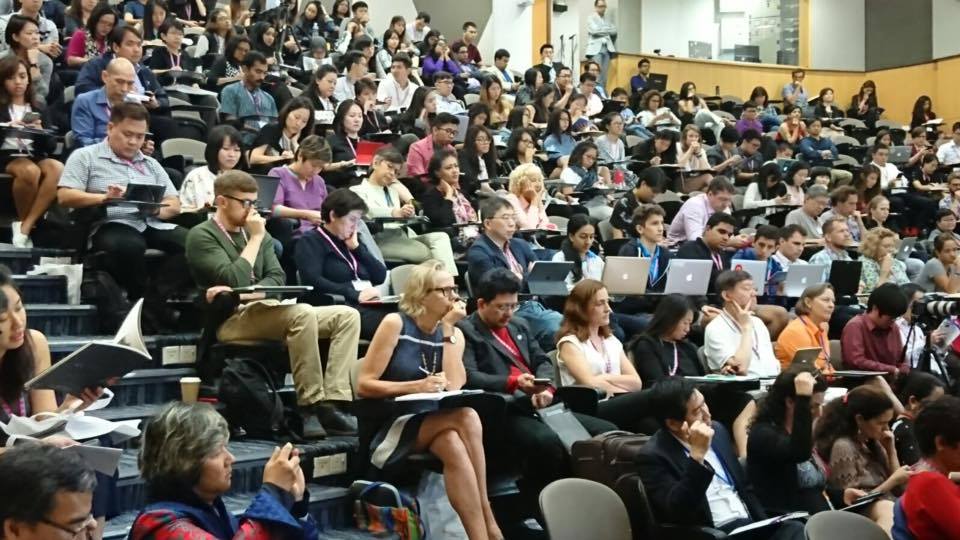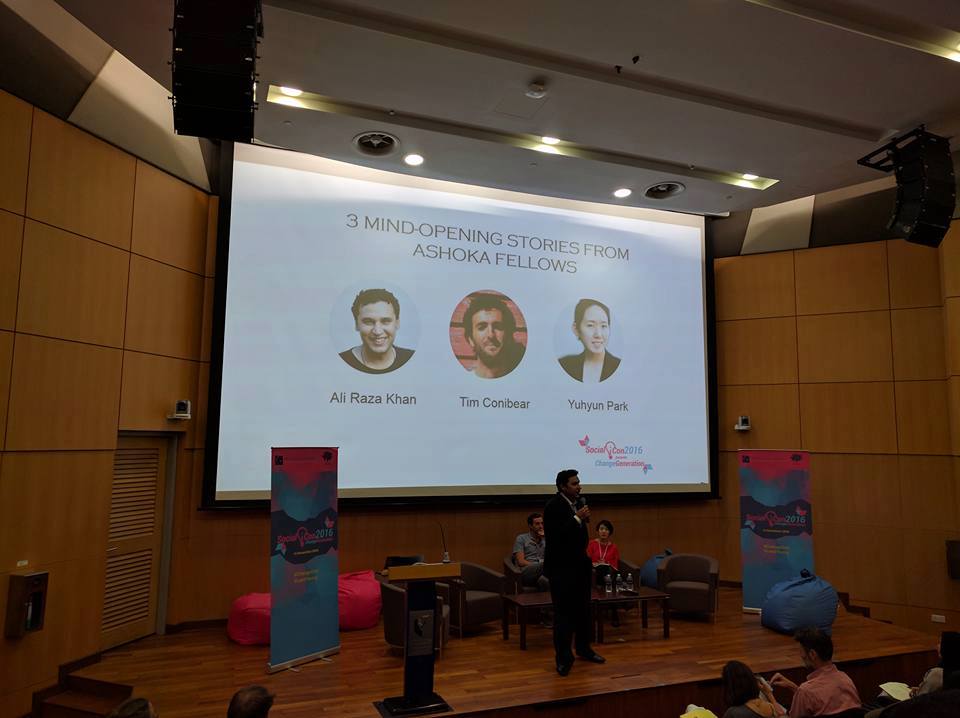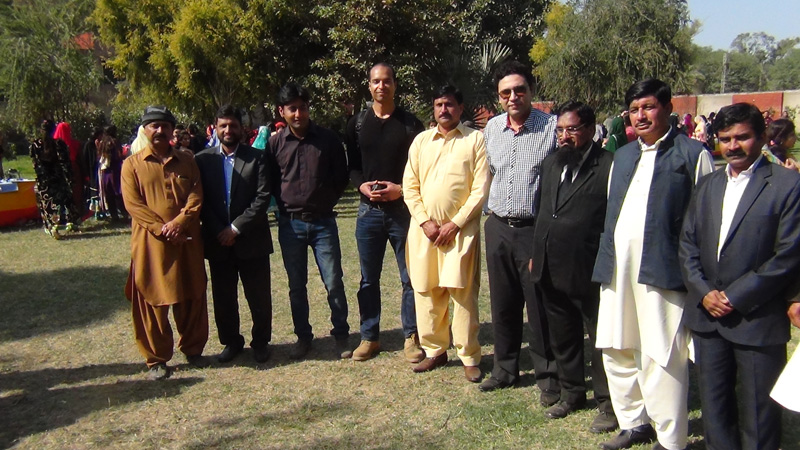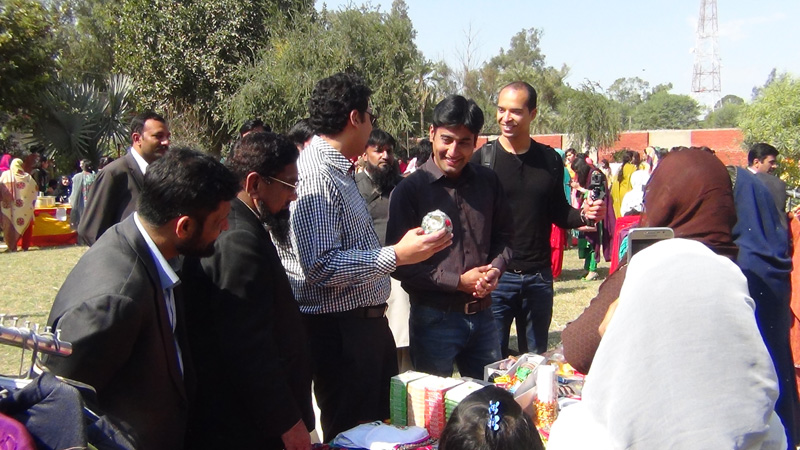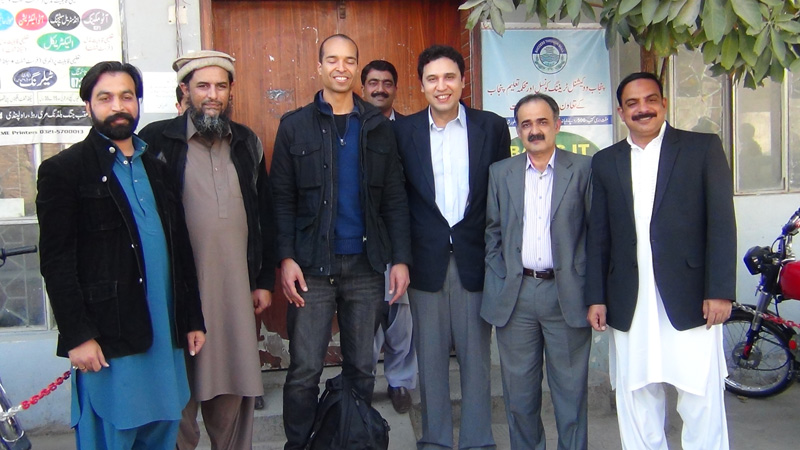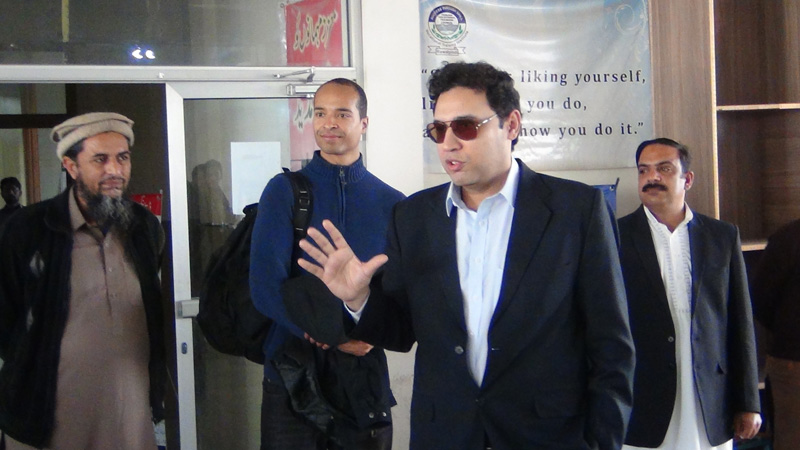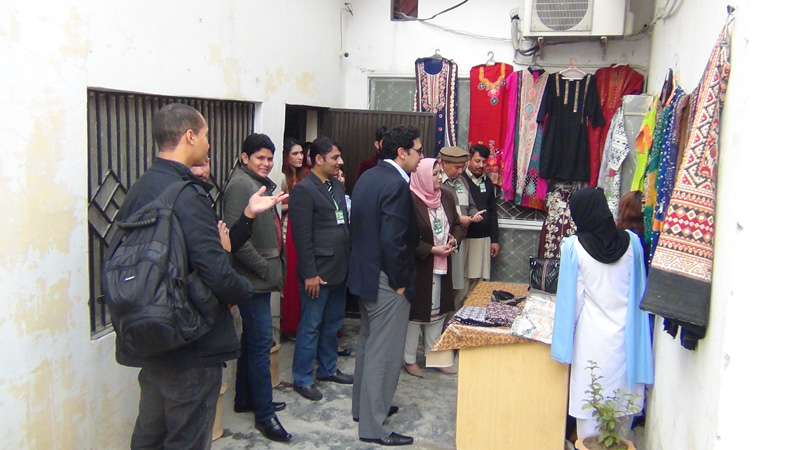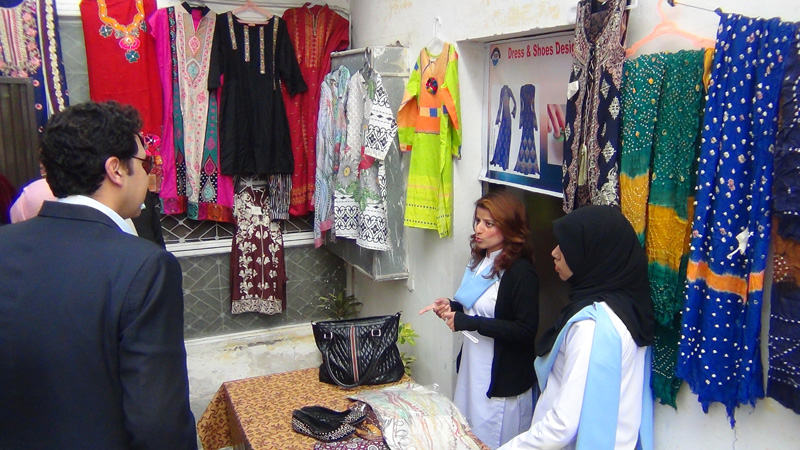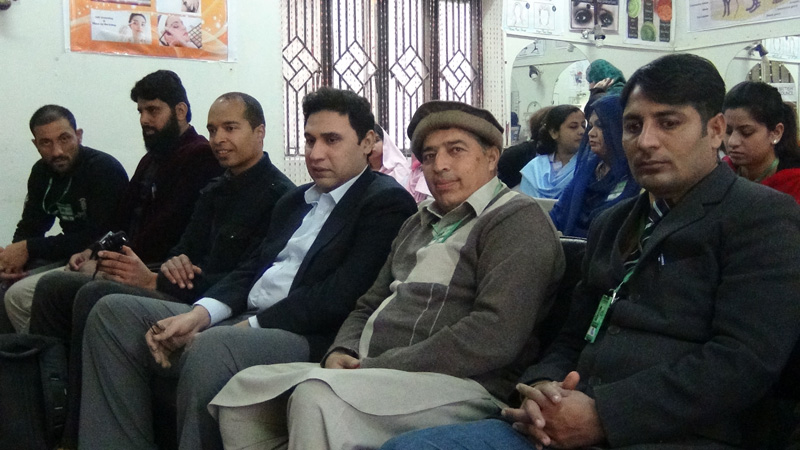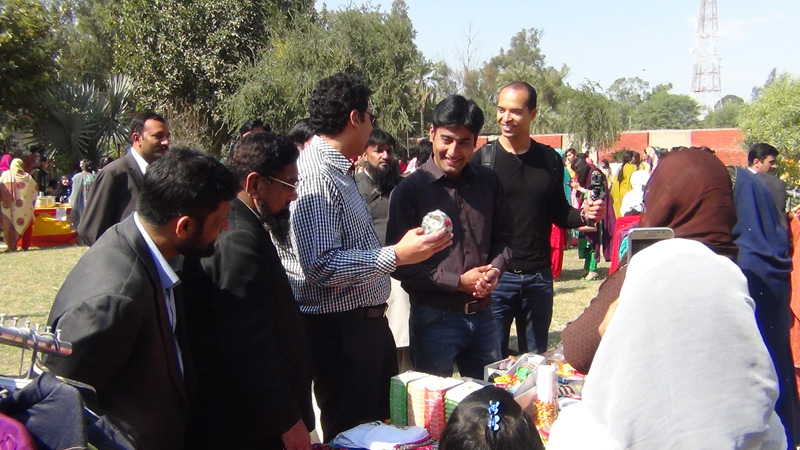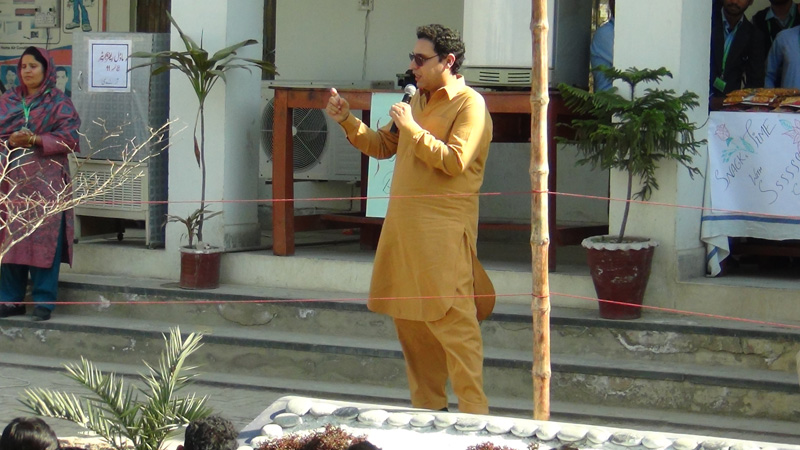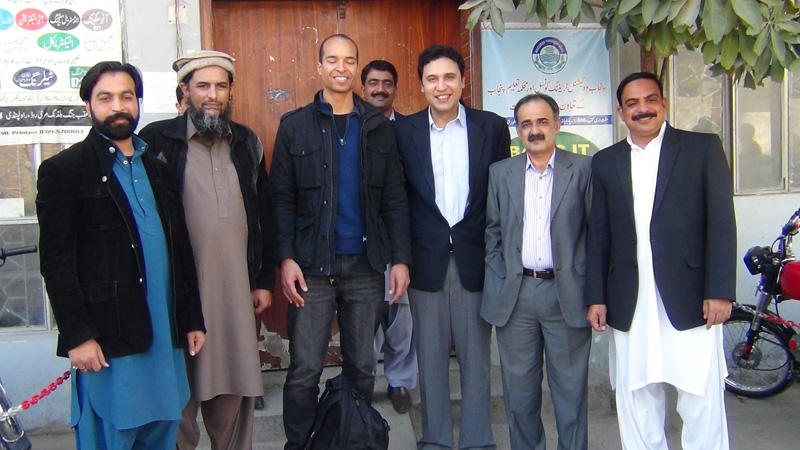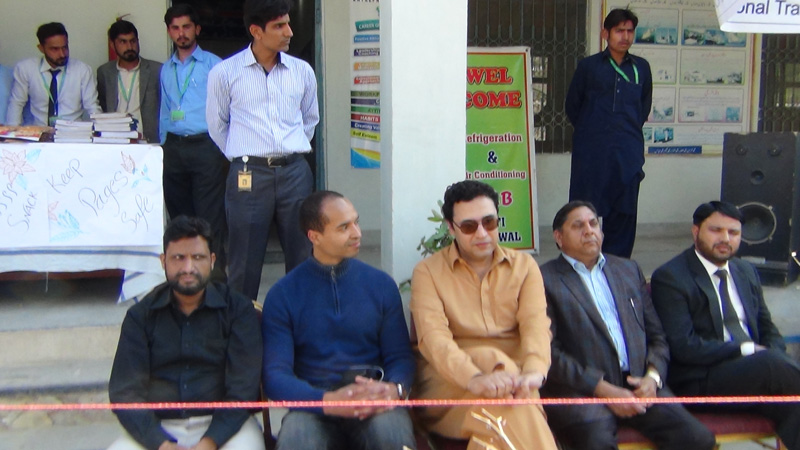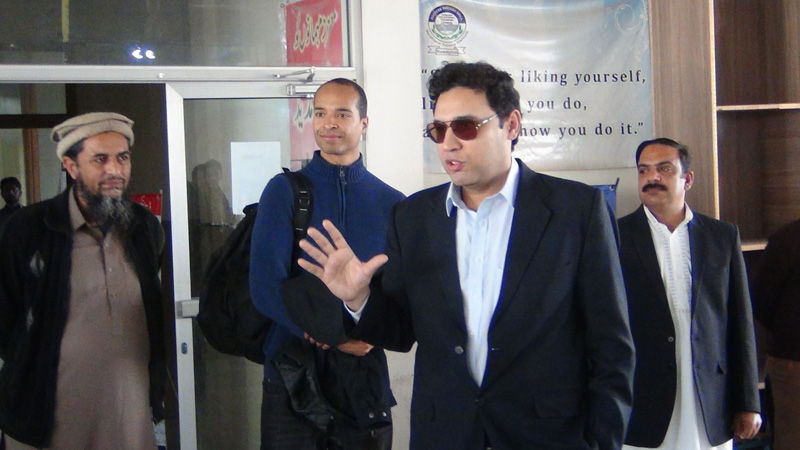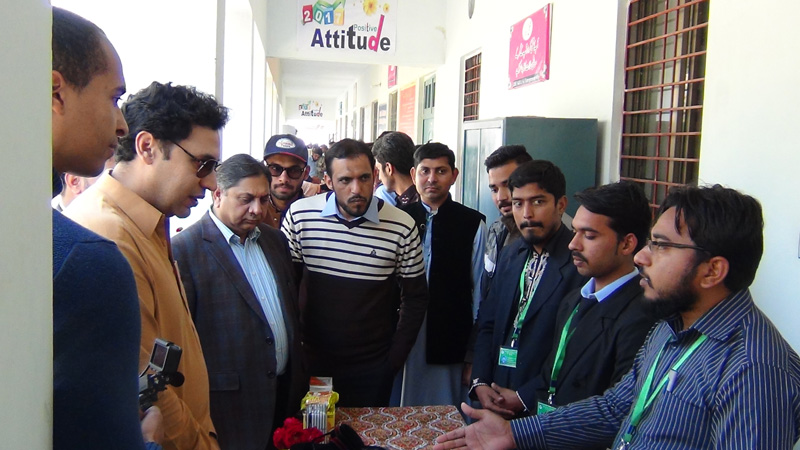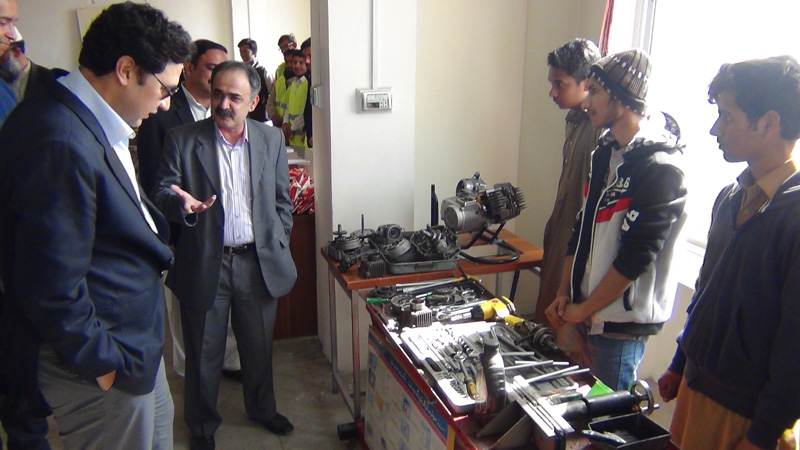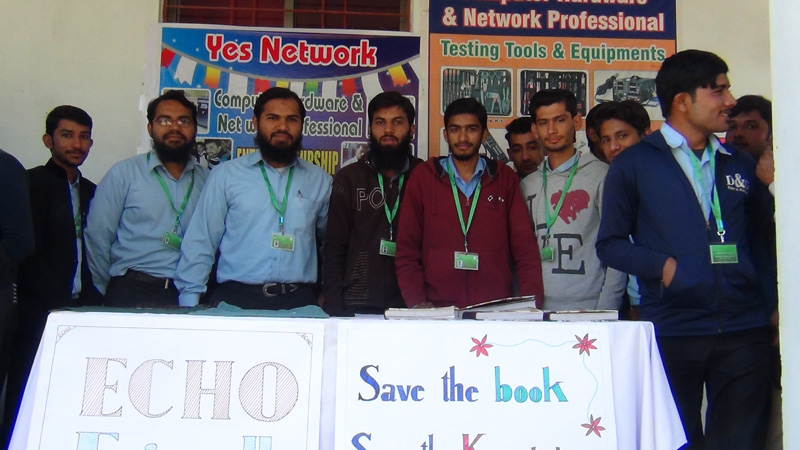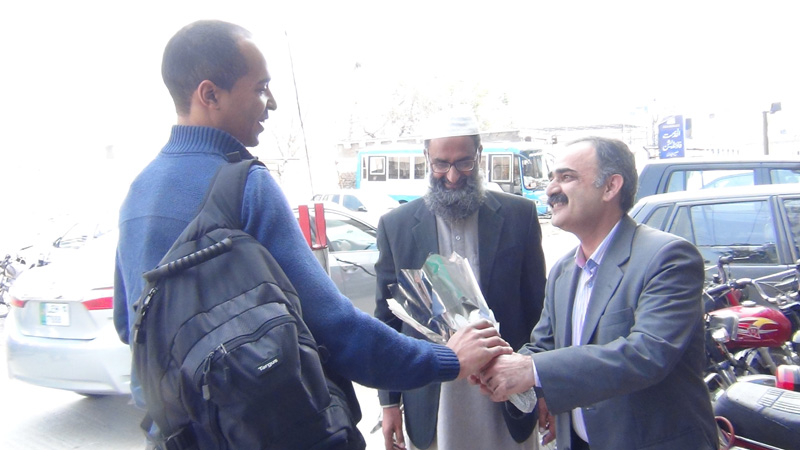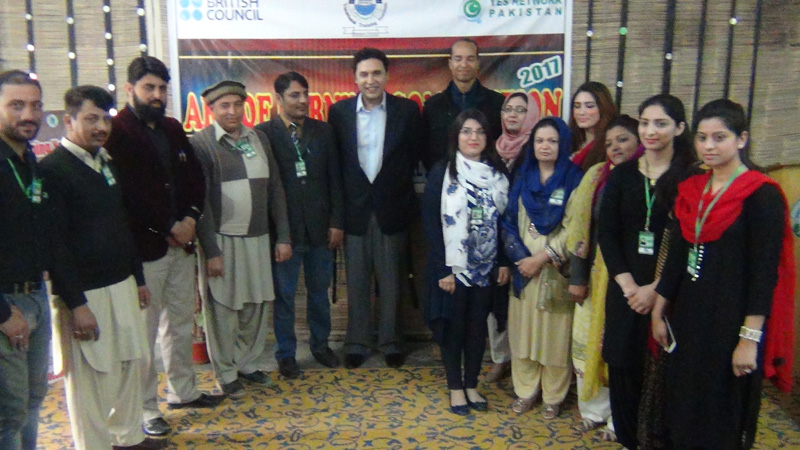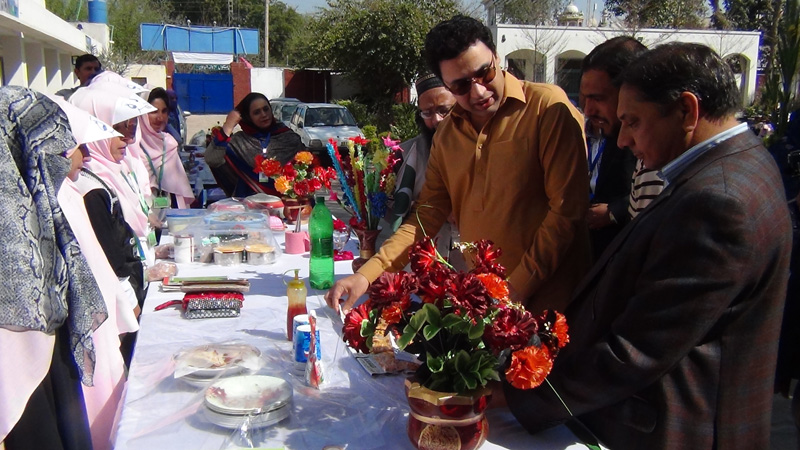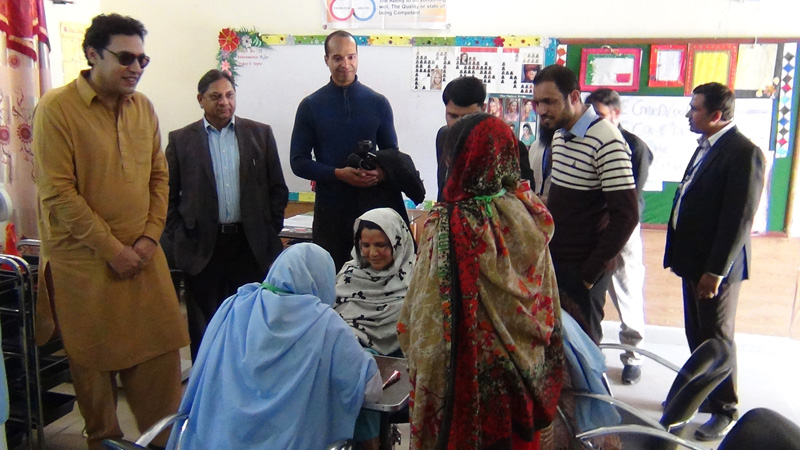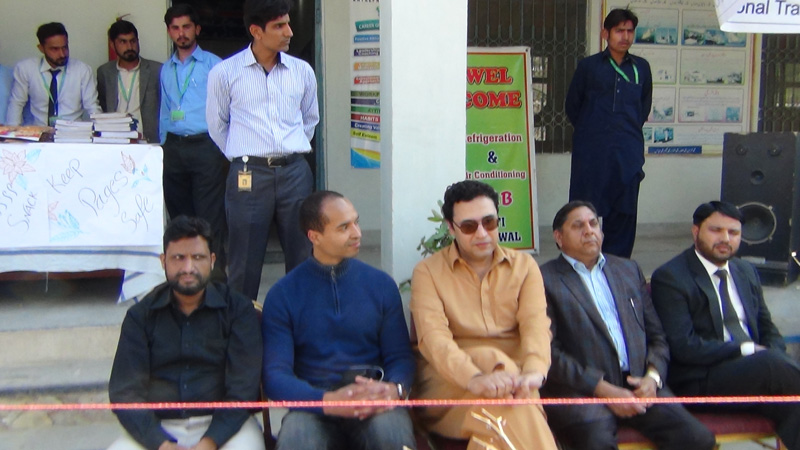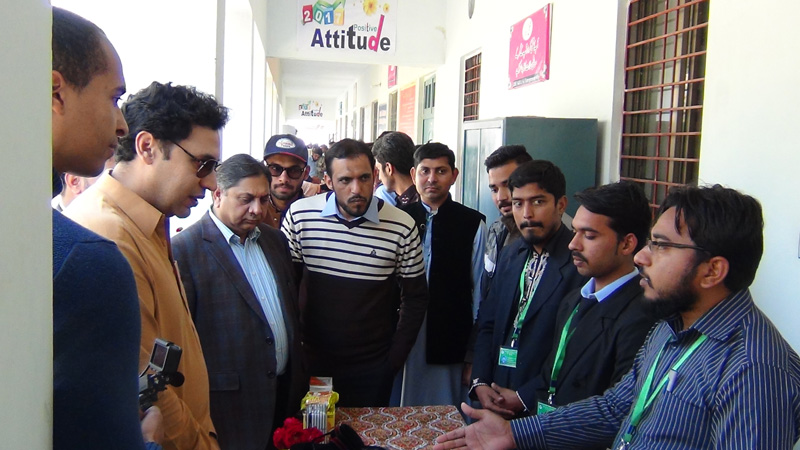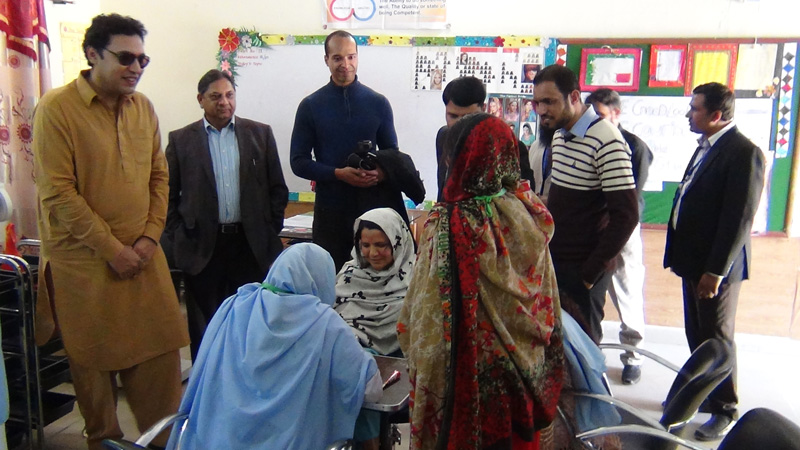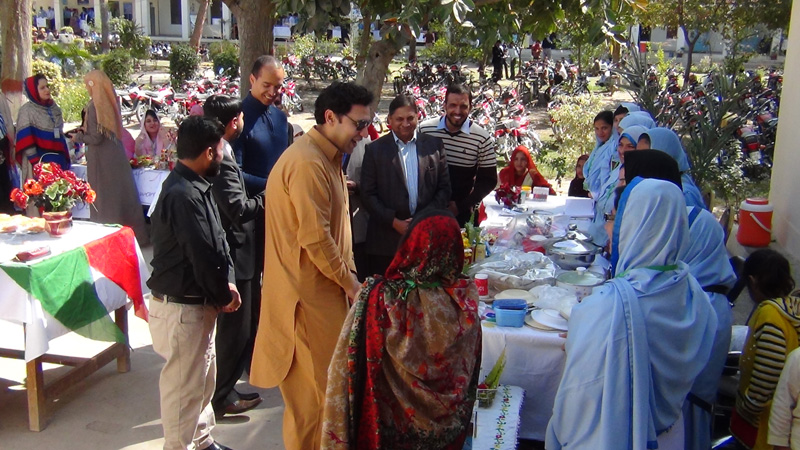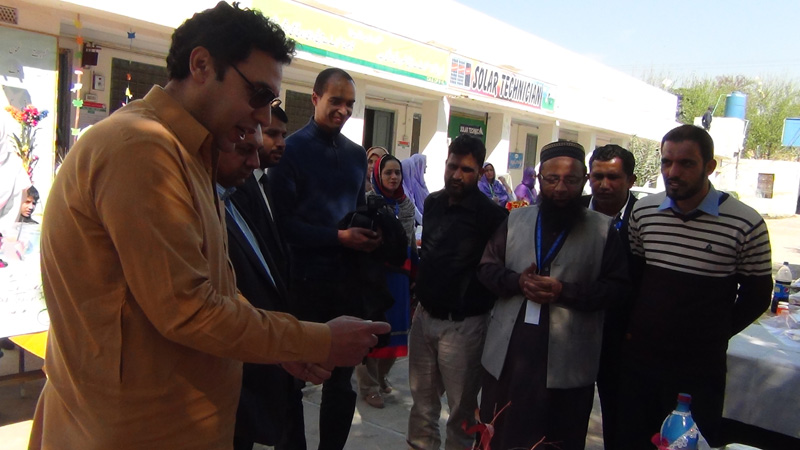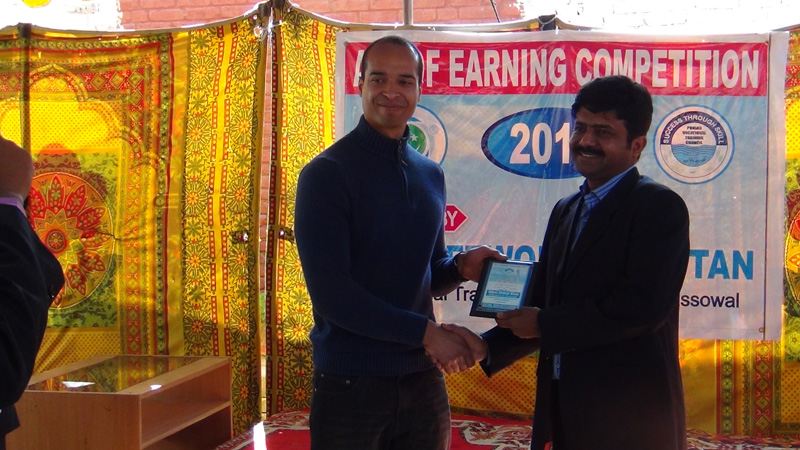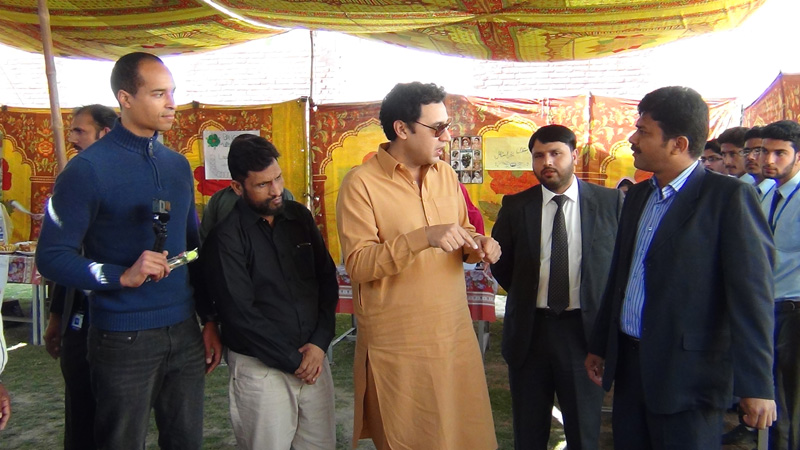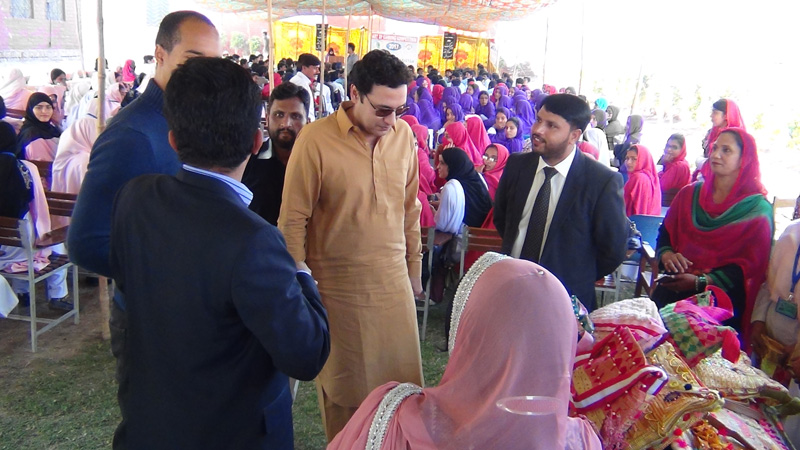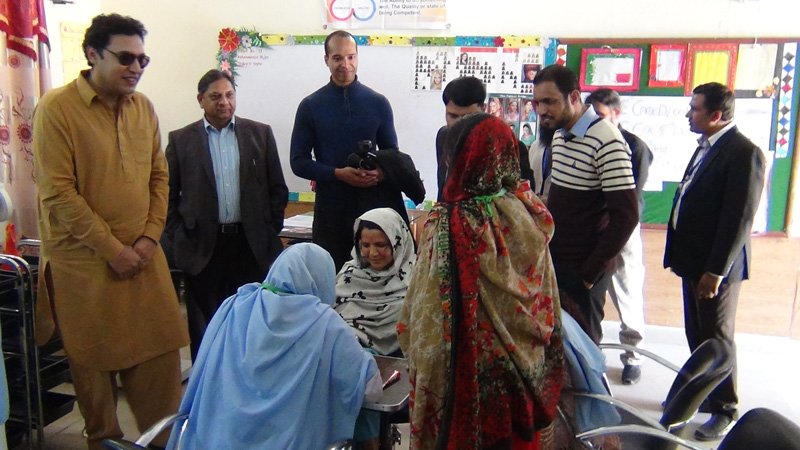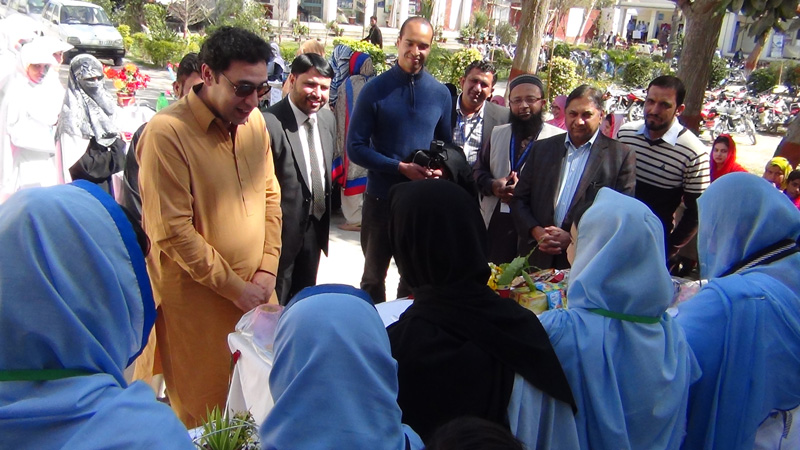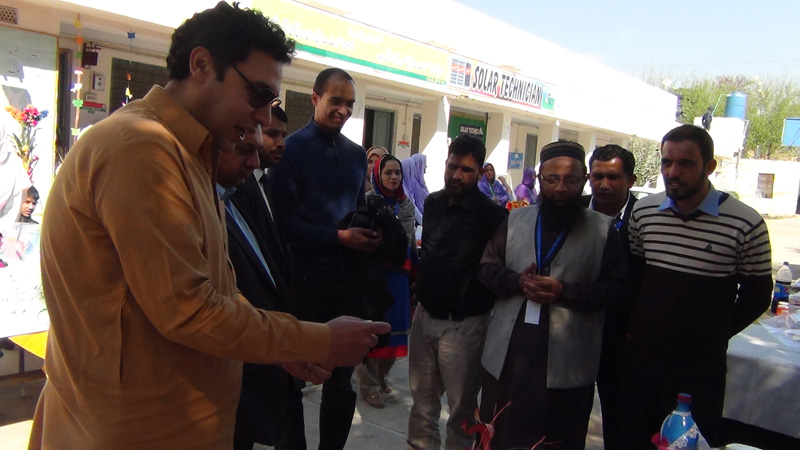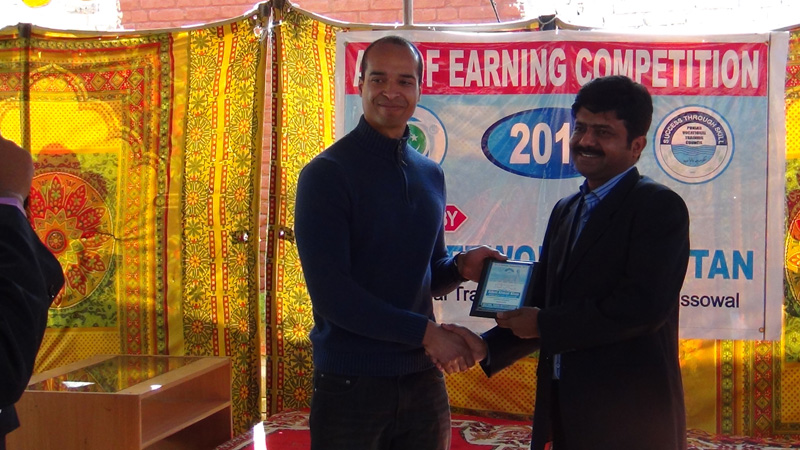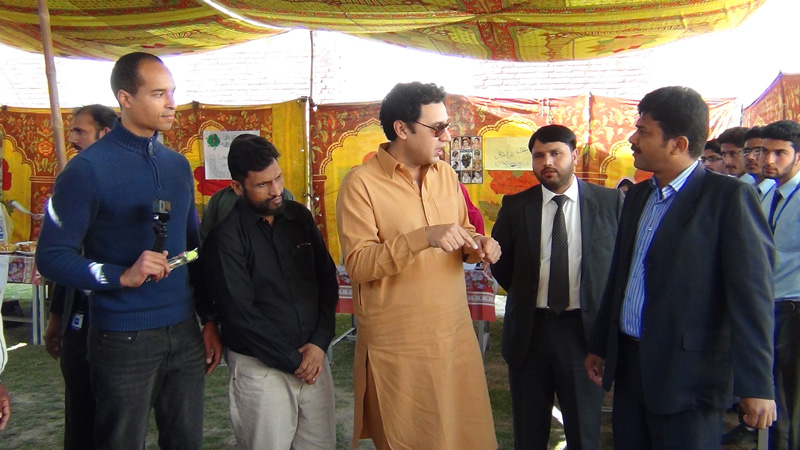YES is expanding its Youth-led Changemaking model internationally through open sourcing, training and strategic partnerships.
Germany: Thomas G. Jakel from Germany has recently launched the “YES Founders Foundation” to take theYouth-led Changemaking Model innovated by Ali Raza Khan to countries and communities worldwide. Read his inspirational story below.
Zimbabwe: Moud Chinembiri launched first-ever Youth-led Changemaking Program in Zimbabwe. Moud organized a series of Youth-led Changemaking Competitions to unlock the changemaking potential of under-served young people. In the words of Moud , “What a self-discovery and adventure for our kids? They became aware of new possibilities without feeling ashamed. I will dedicate myself for it.” Young people did not only meet the needs of the society but also made a profit of 145% on the investment in a short period.
South Asia: Mr. Ali has shared his model of Youth-led Changemaking with young people and representatives of several youth-serving organizations based in South Asia.
Mr. Ali was invited to speak at Frugal Youth Innovative Forum 2019 in Bangladesh.
He recently spoke at South Asia Youth Resilience Summit 2020 organized by BYLC in collaboration with Harvard University and Ashoka Global.
Singapore: Mr. Ali gave a talk to the students of the National University of Singapore on Youth-led Changemaking.
Mr. Ali participated in a panel discussion entitled “Can we trust our young people to lead” held at Singapore Management University.
Mr. Ali spoke at the opening ceremony of the Social iCon 2016 in Singapore. This sold-out conference was full of inspiration and new connections.
Mr. Ali was invited by ILO to serve as a Resource Person in a seminar on Youth Development held in Tokyo, Japan.
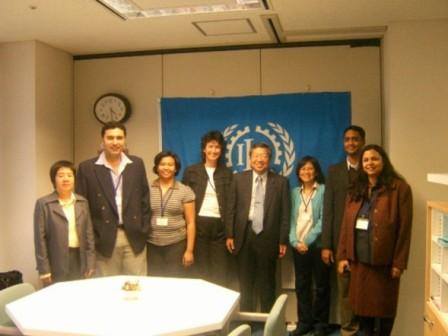
An international delegation comprising of representatives of 30 countries visited YES office to learn about the model of YES Network Pakistan. Mr. Ali gave a detailed briefing on Youth-led Changemaking Model. Participants applauded the efforts of YES to inspire and engage young people in changemaking innovatively.
An Insprational Story of Thomas Jakel from Germany
I am a great believer in destiny. I believe that everyone has a purpose in this lifetime and that, if we live from love and not from fear, if we overcome doubt and trust our higher mind and intuition and follow our hearts, only ‘good’ things can come from it. Coming from the same line of thought and conviction, I believe that some people are supposed to meet.
The encounter I had in February 2017 with Ali Raza Khan is one of these encounters that I believe was supposed to happen, and I want to tell you how it came about.
Shortly after I started my entrepreneurial journey as a 23-year-old, fresh out of college, I realized that there was an entire world out there that had thus far been completely hidden to me.
The world of entrepreneurial endeavor. A world in which you decide how far you can go, how you contribute to your community and a world in which you decide when you get out of bed, how much you earn, and which idea is becoming translated into physical reality. As obvious as this may seem to the veteran entrepreneur, it was exciting news to me. Also, I learned that social entrepreneurs use the vehicle of business to create economic value AND tackle social and ecological challenges. Again, this was big for me and a revolutionary idea. And as soon as I had built my first company with my co-founder, automated the business by hiring a management team, and taken half a year off to celebrate my new-found freedom, I thought that more young people should know about this opportunity ‘hidden’ in plain sight. Formal education is not the be all and end all goal that it is made out to be. You don’t have to be a busy worker bee all your life, realizing someone else’s dream instead of implementing your own ideas. Everyone has the necessary toolkit to create and think. And anyone can design his or her life in the way he or she wants to and be a changemaker and creator. As soon as we DECIDE and BELIEVE THAT WE CAN and SET THE INTENTION that we ARE going to walk the path, the success is already ours. If we trust the river, knowing that eventually we will learn and succeed in our efforts, this is exactly what is going to happen.
Why did no one ever talked about this in school? Why hadn’t it even been mentioned in my business administration degree at college? And why was the only thing I ever heard about growing up: Be good at school, get a degree and then get a job. Work all your life. Retire. Die? Tainted with the underlying message that if you are not good at getting acceptable grades, you’ll be condemned to a life in poverty, relying on welfare or underpaid jobs. What an enticing outlook.
Why wasn’t there a single mention that our ideas have value if we trust our God-given ability to manifest them in the material world, to be changemakers? And finally, why were we trained, systematically trained, to look to others for solutions to problems instead of creating practical solutions in the real world to problems and challenges, be they social, economical, spiritual or ecological? From these contemplations came my desire to change the education system or establish a parallel system, allowing young people to make the entrepreneurial experiences that I had gotten. We started hosting workshops and conferences encouraging young people to start a business. Looking back, I barely knew what I was doing but still, several ‘successful’ businesses came forth from our workshops. However, a real change in the education system was nowhere in sight. Our model just wasn’t the right one, considering the size of the challenge.
Additionally, the vision of me and my team members wasn’t well aligned. But my interest in the topic and the nagging feeling that it wasn’t right to leave all these young people growing up in the dark about their opportunities and their latent potential and their changemaking skills kept me investigating. At first, my research approach was very haphazard, asking friends from different countries about projects on the ground that were trying to help young people start their changemaking journey. When my random search and interviews didn’t give me a clearer idea of where to get involved, I started ordering books about social entrepreneurship, hoping to find inspiration in them. And inspiration I found. Although I never actually got to the real reading of the books, there was a book that made a big difference. Actually, that is imprecise. The foreword of the book is what made all the difference to me. In it, Bill Drayton, the founder of the international Ashoka Network, wrote about a social entrepreneur from Pakistan, Ali Raza Khan, who is changing thousands of young people’s lives by telling them that they CAN, that they were born great and that they have all it takes to become changemakers. But not only that – he challenges them to start businesses and, not to his surprise, the overwhelming majority of these kids that are regarded as ‘difficult cases’ by the government, succeed with flying colors, earning profits and challenging everyone’s belief system about what young people are capable of if they are trusted enough and are met with high expectations. Wow. After reading the foreword, I knew that I had to get in touch with Ali. I sent him an email asking him for a Video Interview. His staff got back to me asking me for the interview questions and that he would fill them in in writing as he was in Singapore at the time. I managed to postpone sending in the questions for about a week. Then I got an email from Ali, personally letting me know that he was back from Singapore and would be open to doing the interview at any time. We arranged the interview and got on the call for about an hour. If you could have seen my face during that interview. I was brimming with inspiration. Here, it seemed, I had finally found someone who had hacked the system and identified a systematic approach that helped young people start their changemaking journey. And he didn’t do it by throwing money at the problem, building big infrastructure, setting up tech incubators, bringing on board investors, or looking for ‘fledgling potential’ and all these other approaches that are nice but are no model to scale to reach the hundreds of millions of young people at the ‘bottom of the pyramid’, who most need this experience and encouragement.
Not only did it seem that Ali had come across a workable, scalable model to give young people a practical entrepreneurship and changemaking experience, but he also managed to have stellar success rates AND have the majority of the kids and youth earning a profit on their projects. AND, on top of that, he manages to facilitate this experience within two to five weeks. This was insane. I had more questions on my mind than we both had time for during the interview. So, I asked him whether I could go visit him in Pakistan and see the project for myself. I wanted to see every detail of how Ali’s organization worked. ‘Sure, be my guest.’ said Ali. So, I booked my ticket to Pakistan on new year’s evening, 2016, and got the opportunity to accompany Ali for almost two weeks, to different Universities and Vocational Training Institutes in Punjab, speaking with hundreds of students, dozens of teachers and professors, and taking a bunch of random selfies with the students that wanted a picture with the brown-skin German mister that had come to see their enterprises. The trip was not only inspiring and fun but also heartwarming as I heard the stories of some of the students. I could literally pick up how much this short experience had already changed their lives, their self-esteem, and their prospects for the future. At times, I had tears of gratitude in my eyes, for what I saw was way beyond what I could have hoped for. If it takes only two to five weeks to massively change a young person’s life and mindset and his or her prospects for the future and you even earn a return on investment while facilitating them the experience, why weren’t more institutions and edupreneurs facilitating this experience?
The projects and the results from the projects, in terms of monetary return and social impact often blew my mind. Think about it: This was only the very first, minuscule, entrepreneurial experience these youngsters had. Yet, it made a huge difference in their consciousness and how they saw themselves. Young girls who had never spoken to strangers had learned how to sell their products. Kids from poor families made a profit in two to five weeks that was beyond what many of their parents would earn in several months. And as I have observed, in myself and others: Once a changemaker, always a changemaker. This is a primary shift from victim mode to creator mode and is likely to pay social dividends again and again, not only in the lives of these young boys and girls, but also in their communities, for their country, and, finally, for all of humankind. Imagine what will happen if this kind of experience is facilitated not only to the tens of thousands of young people that YES Network has reached thus far, but to the hundreds of millions of young people growing up all over the world. What if we awaken all the latent potential? What if we allow everyone to become citizens in constructive action? What if we all have a practical experience in using our natural capabilities of imagination and creativity and empathy to create social and economic value? Not only as ‘passive’ labor but as changemakers, regardless of whether we are working for someone else or building our own businesses.
So, to make a long story short: I hope you will find the story and the stories of the young people of Pakistan and Ali’s journey as encouraging and inspiring as I found them when I first heard about them. And I hope that even if all you do is read this foreword, you are by now convinced that the Youth is a huge, untapped goldmine in terms of their size as a population and their untapped potential to create value and solutions for themselves and all of us. I hope that getting an entrepreneurial and changemaker experience early in life will not be the exception but the absolute standard and that you will be a part of this development as a changemaker in your own right.

